Holly’s Typewriter Poetry: Holly Walker on vulnerability in business
The rise of small businesses in recent years is in no small part due to a growing demand for specialized products. From soaps, to pottery, to jewelry, customers find a more personalized touch in the hand-made merchandises small business owners supply. The small business world in general applies a degree of passion to business, allowing owners to turn hobbies or personal interests for a profit. They provide not only a product, but an experience that is often equally as dear to them as their customers.
One small business owner that exemplifies this sentiment is Holly Walker, a current junior at UNCW majoring in creative writing. It is, in fact, her writing that she sells. As its name suggests, Holly’s Typewriter Poetry boasts an extremely unique product: personalized, typewritten poems. Only a year into its development, her work has touched the lives of customers across Wilmington and beyond.
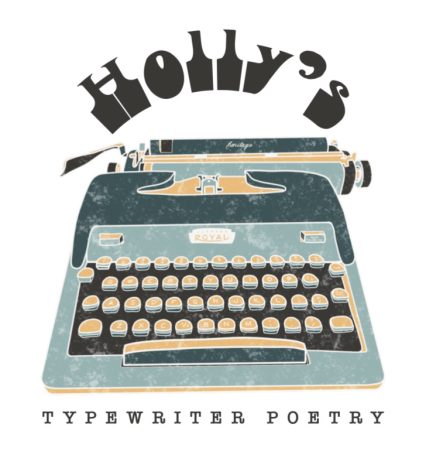
Walker officially opened her business during quarantine with the intersection of two distinct inspirations. The first came from a friend who had started her own small business on Instagram, sparking Walker’s initial interest in the idea. The second came in her desire to distinguish herself as a writer.
“I had been trying to figure out how to get myself out there for a while,” said Walker. “It’s so hard to do that in college, or at any age, really. I suddenly had all this time to think about it. At the time, poetry wasn’t my strong suit, and I had wanted to get better at it. So I thought, what if I took this typewriter I had and started a poetry business with it? I got on my personal Instagram and posted about it, saying that I was selling typewritten poems for two dollars. I got about twenty orders.”
Walker initially came to UNCW interested in fiction, but it was this desire to improve in poetry that led her to switch her focus. “It was hard for me at first,” said Walker on her relationship with the genre. “I didn’t get it. But as I started to do it more in my creative writing classes, I realized how fun it was. What had first intimidated me about it was the structure, the form and rhyme that most associate with poetry. But it’s more than that—its main goal is to make people feel things.”
With a new appreciation fueling her, Walker honed her poetic talents to the success of her business. She worked to create a product line encompassing several forms of her typewritten poems. She currently offers love notes and fortunes on vintage paper, as well as a nostalgic series of typewritten postcards. At the markets she attends specifically, Walker sells twenty-five-cent lines of poetry.
However, the heart of her business remains in the custom poetry she offers. Online, the customer gives her a prompt, and she takes time to muse on the final product. At markets, though, her writing is on the spot. Her poetic process allows her to work efficiently under either time constraint, producing not only a quality result for each customer, but one that touches them. It is her emphasis on authenticity that accomplishes this.
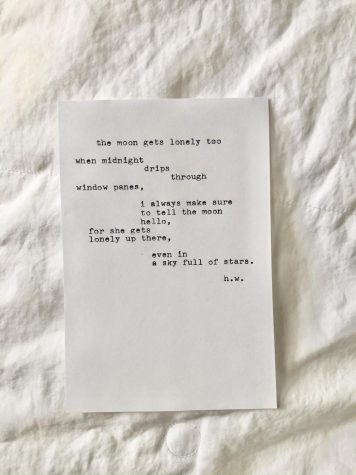
“When writing a poem, I first note what message people need. I think about that person and ask myself, what do I want them to get out of this poem? I then take their prompt from that approach. Sometimes, I pull from my experiences with a situation they’re dealing with. Other times, people request a subject I have no connection with. In either case, though, the thing I incorporate from myself as the poet are authentic emotions,” said Walker.
“If you write a poem—or anything, really—and the feelings and passions behind it seem fabricated, people are going to clock out. My goal is to be real. I want my readers to be able to resonate with the work I give them, so I make their prompt come alive through my own emotions, my vulnerability. It is through this creative approach that I can connect with them.”
This empathetic approach is what sets her business apart. While other small businesses often focus on a product, what Walker truly sells is a connection. Her passion for her art and for the emotion it expresses extends to her customers. It is something they notice about her and are drawn by, demonstrating the unique degree of connection that her business possesses.
“When I write my work, I hear strangers’ life stories—some in a word, some with much more detail,” said Walker. “I think my business creates an environment where it is welcome for customers to spill their heart and soul to me, so that I can create something for them from myself. It’s a beautiful exchange. With other kinds of businesses, you don’t necessarily need to get to know your customers. It’s mostly about what you’re selling. But there’s a level of vulnerability already built into mine.”
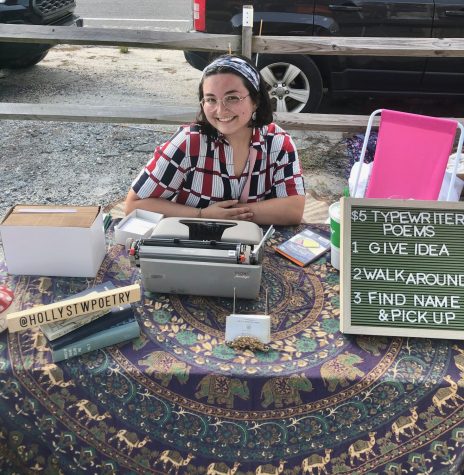
This personal connection has contributed greatly to the growth of her business. Just as she stresses authentic interactions with her customers, she emphasizes the same in her marketing on social media. “When I first started my Twitter, no one followed me, obviously, but I started posting as if I was talking to someone. I connected with other artists by really making it about my life. I did the same with my Instagram, which I used to find other Wilmington-based businesses. I went in to one of The Plant Outpost’s pop-ups, spoke with them, and they invited me to do my first market. I marketed myself by being myself, and it worked. It all goes back to me wanting to be real.”
Walker regularly updates her Instagram and Twitter with the dates of the markets she attends. Her pop-up booth frequents The Plant Outpost’s pop-ups, Crafted Outpost’s monthly markets, Curated on Castle and others. Her schedule is not set, so keep up with her on social media to know where to find her next. Customers can also place orders through her website, where she often offers her newest items.
Holly’s Typewriter Poetry extends beyond its small business label. The foundation of art is an exchange of ideas and emotions between its creator and the spectators. In Walker’s business model, though, the spectators are welcomed into the creation. Her poetry is something she shares with her customers, gifting them an expression of their own emotions, experiences, or simple fantasies. It is one of the most refreshing ways of doing business in a culture often more focused on consumerism than connection.


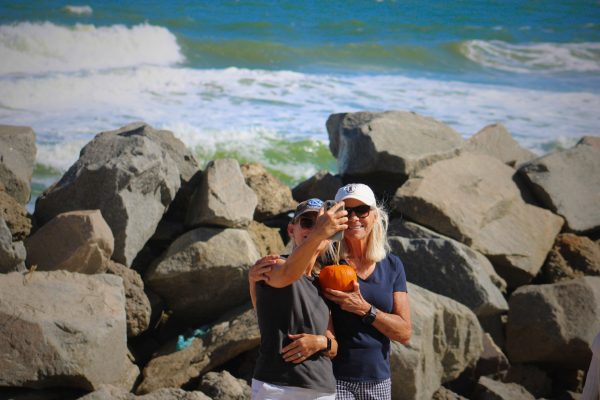
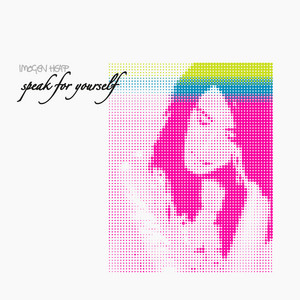




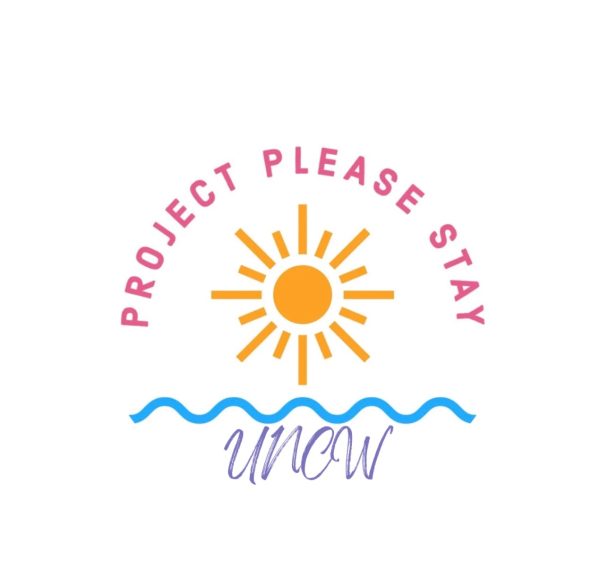
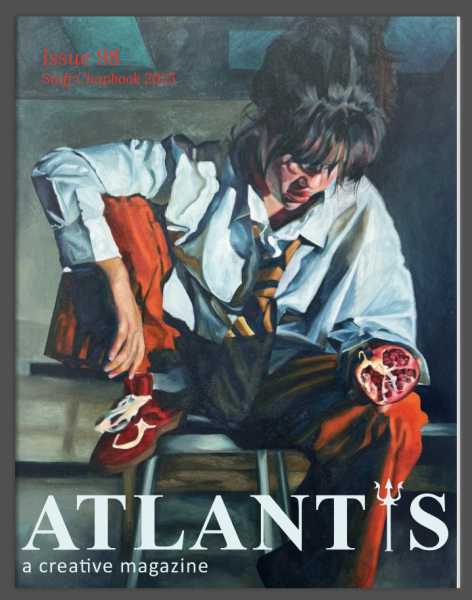

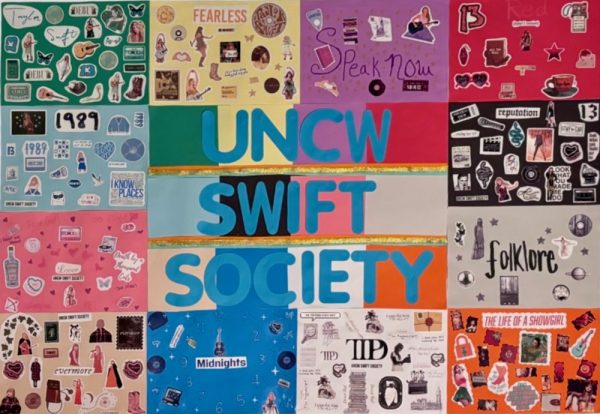
Adams Margaret Adams • Dec 16, 2021 at 3:48 am
I knew Paris well and still miss my buddy. Roma is such a dear friend. Thomas and Phillip gave our son, Carter a bunny when they were raising them for fun and food. Great guys!!!! Wonderful family!!! Always so proud of Holly. Congrats on your “heart” business. Love it.